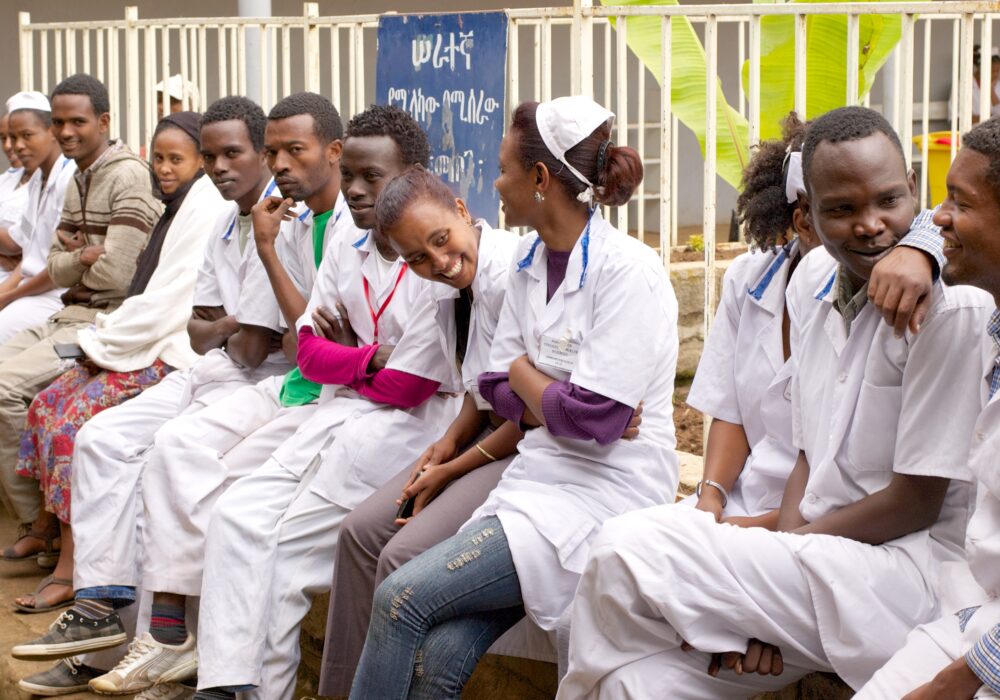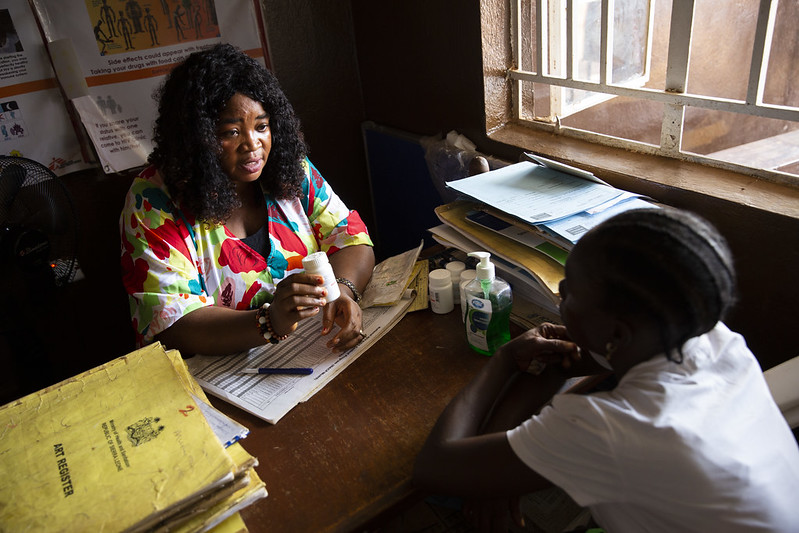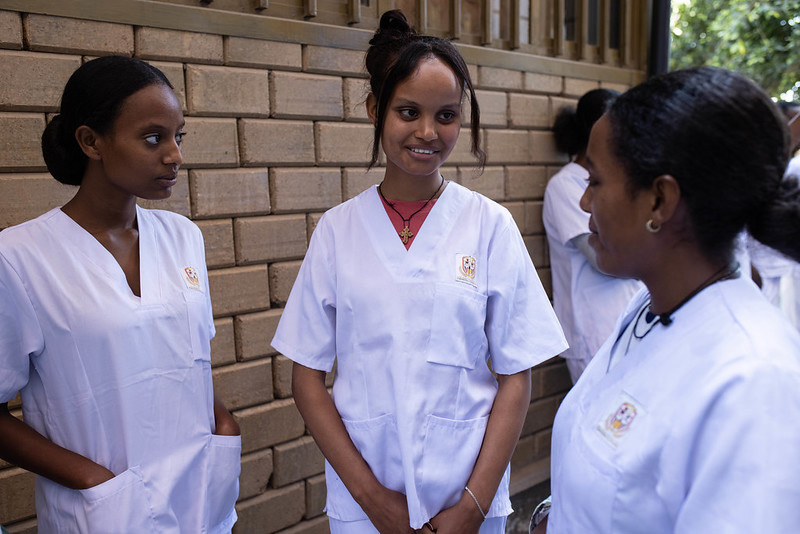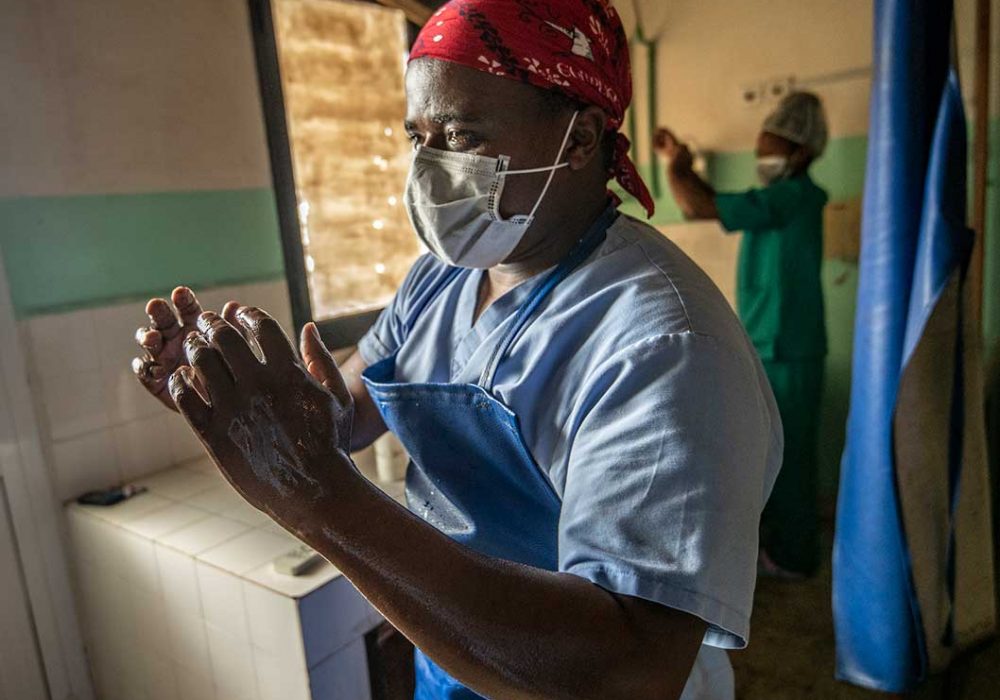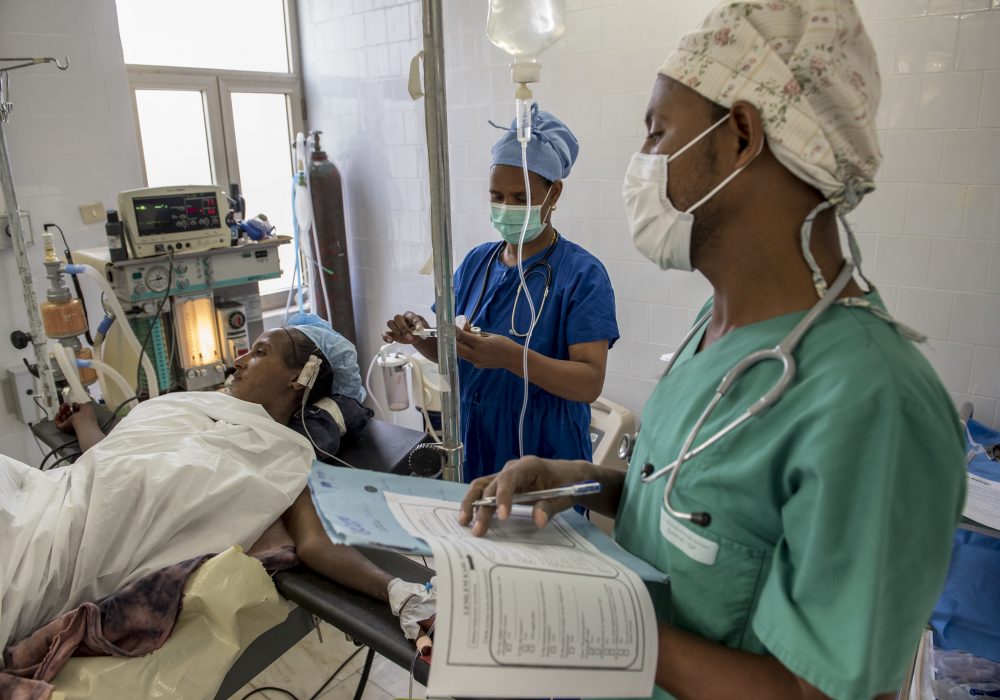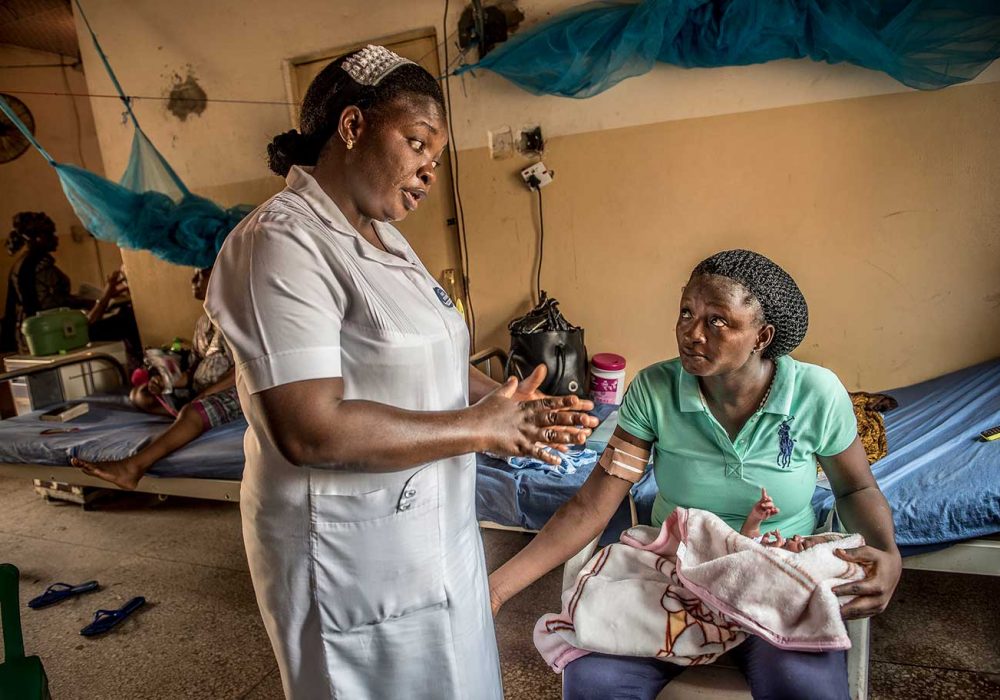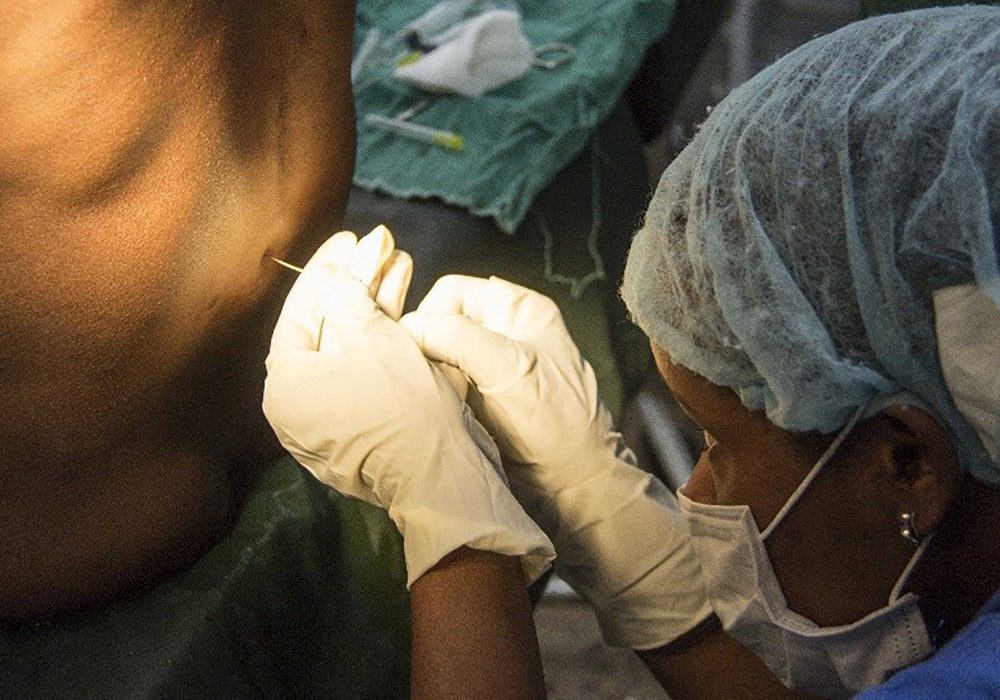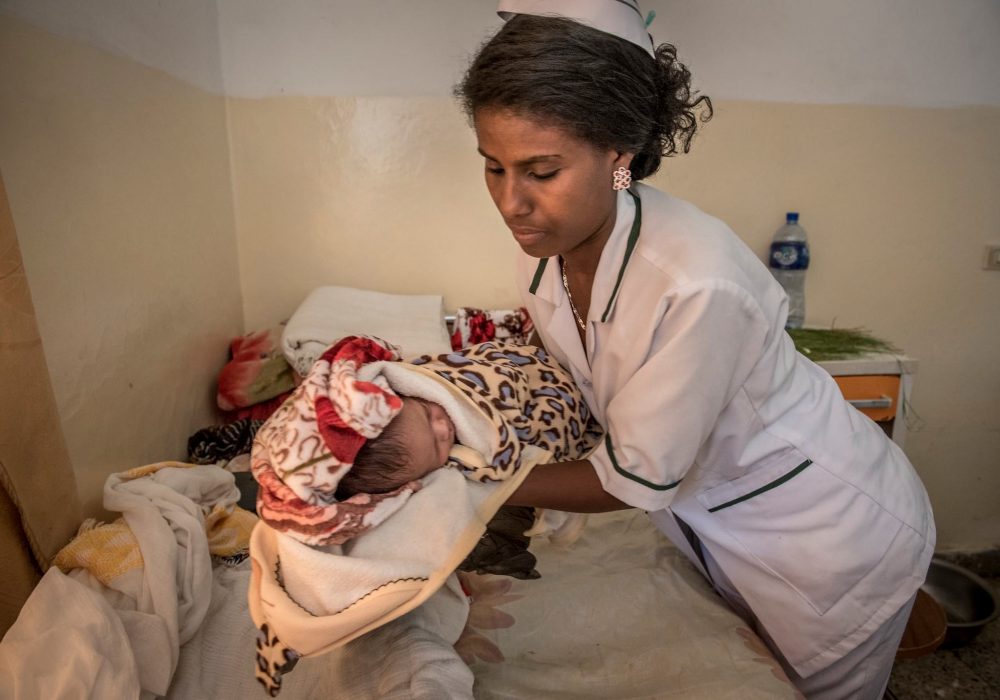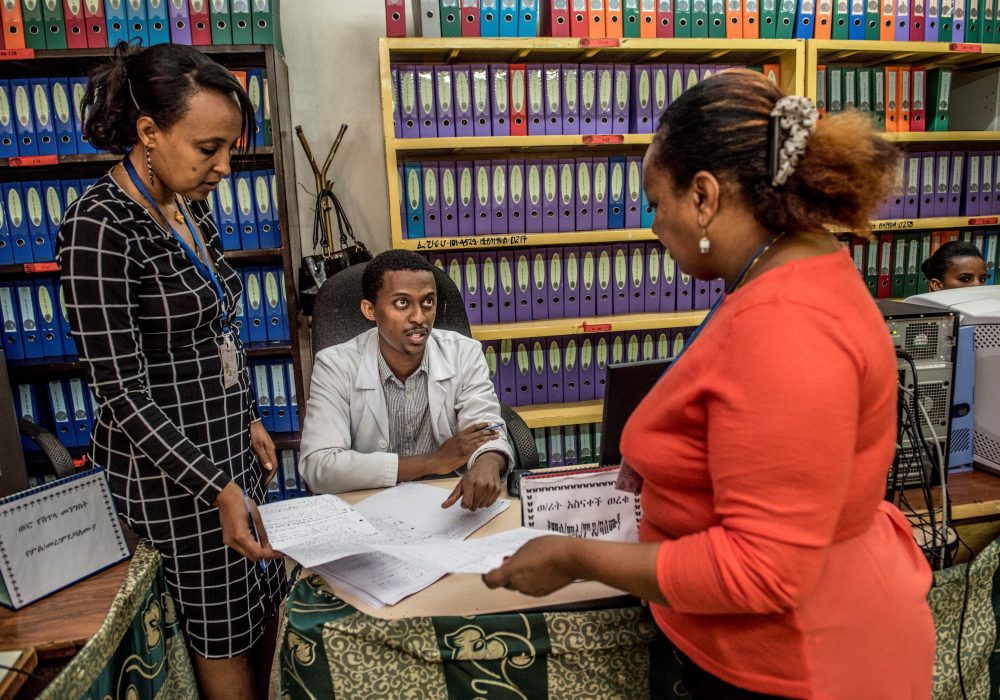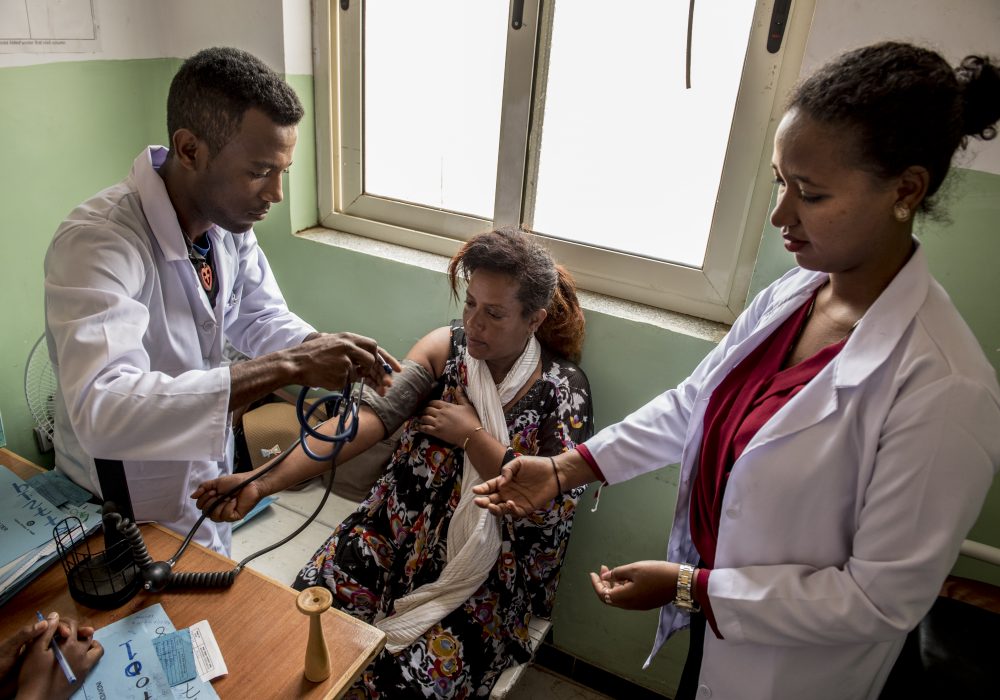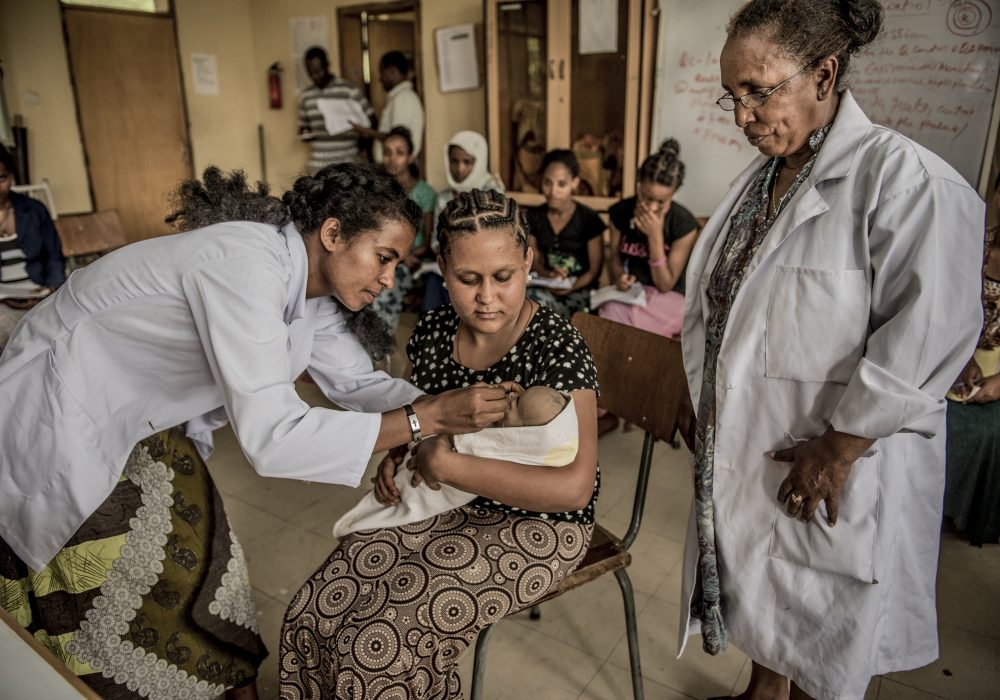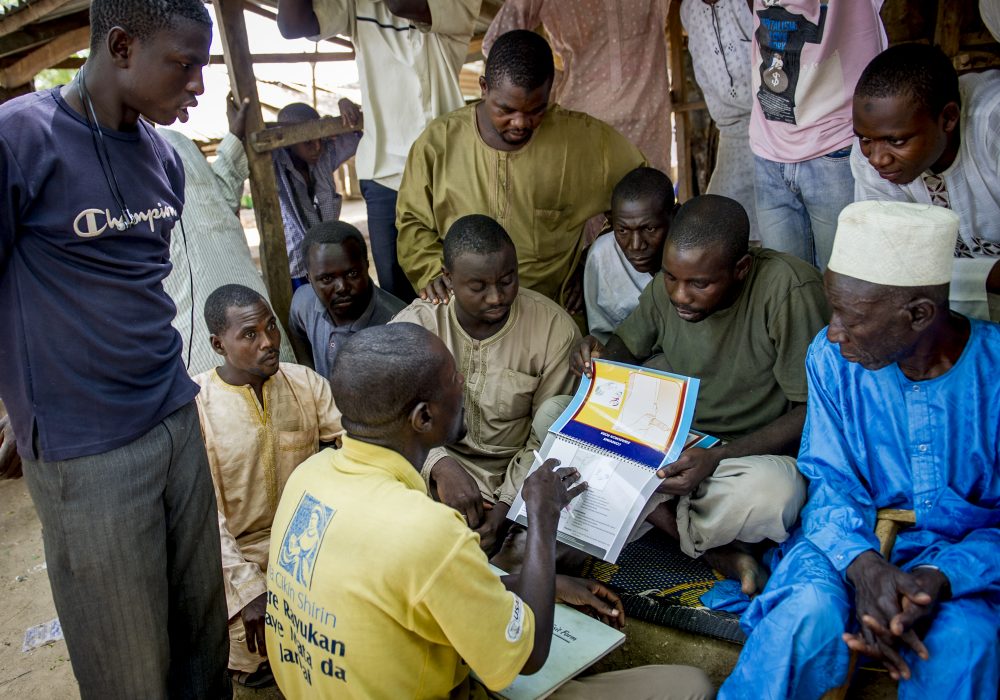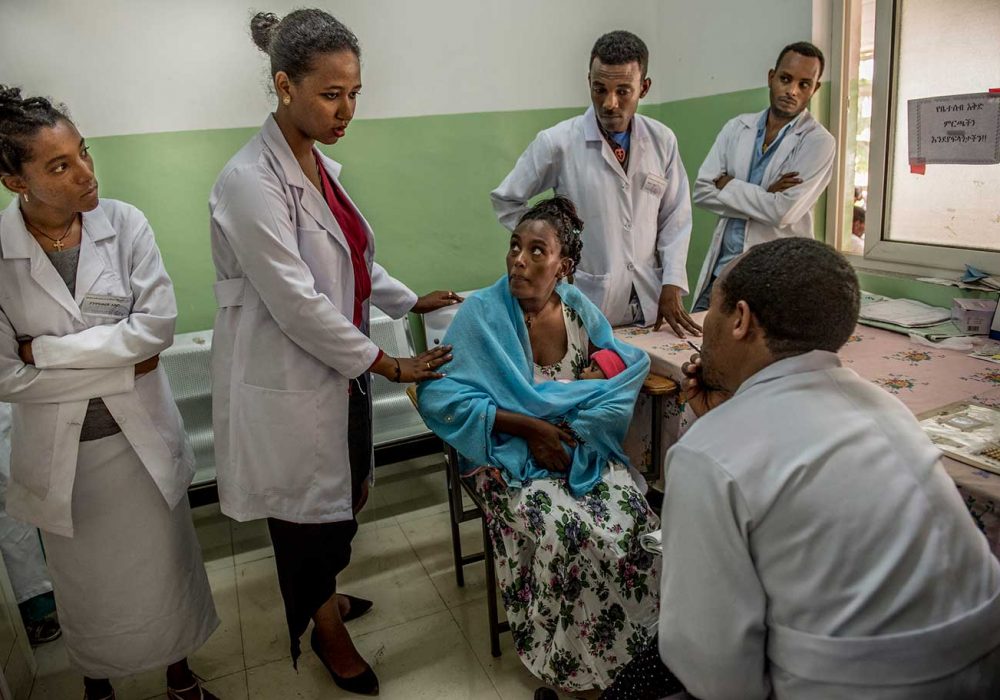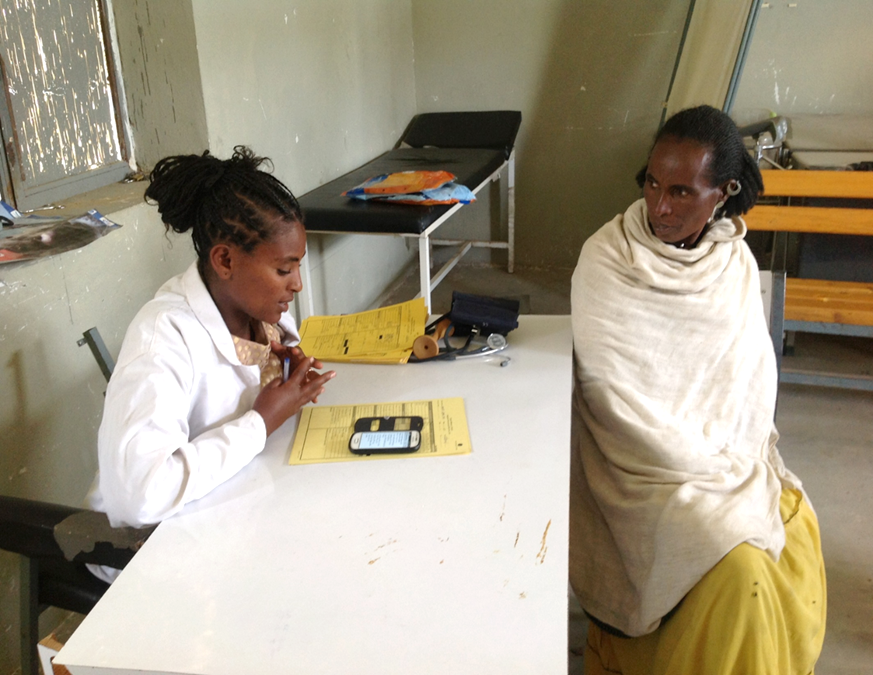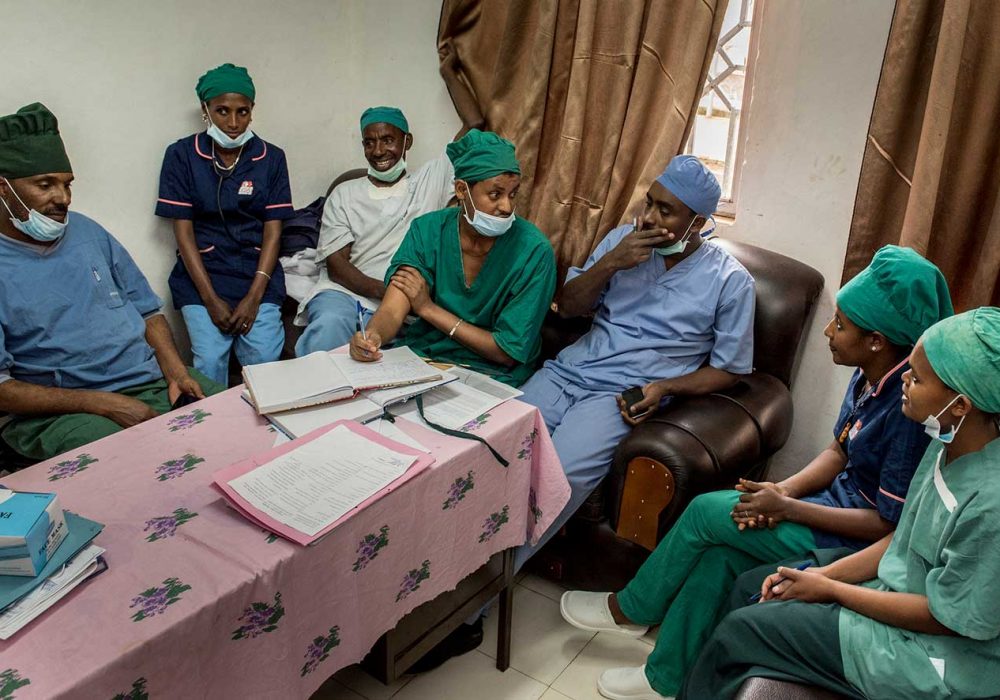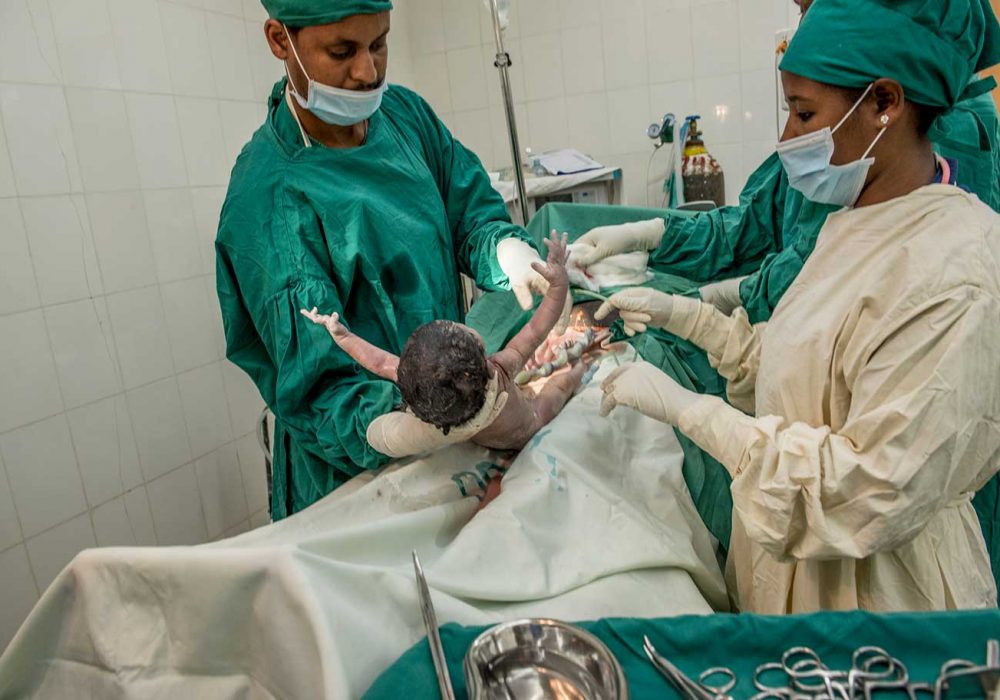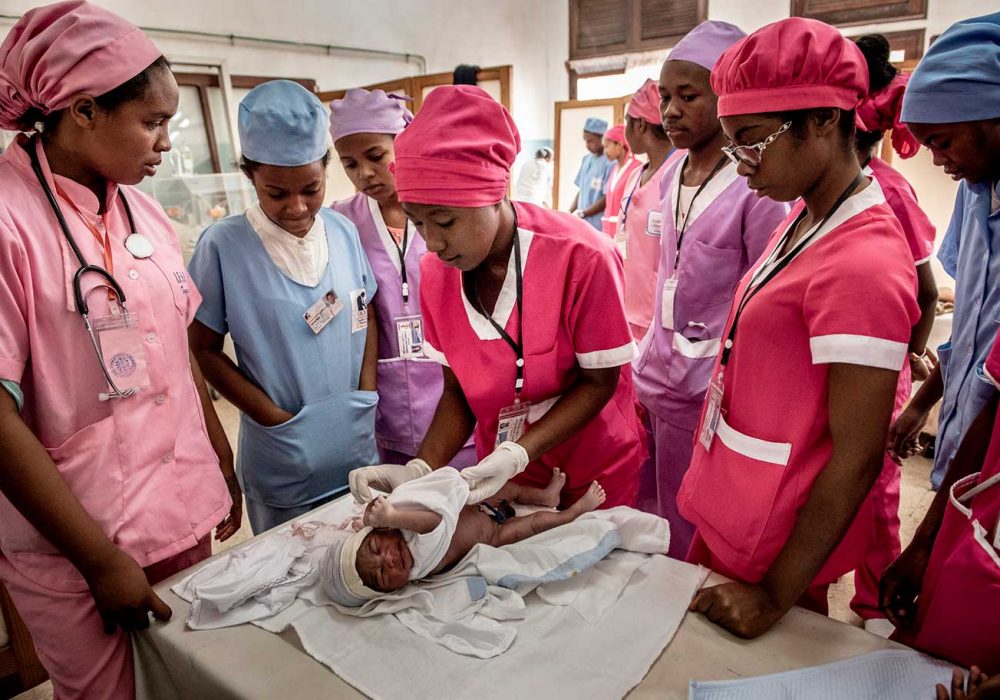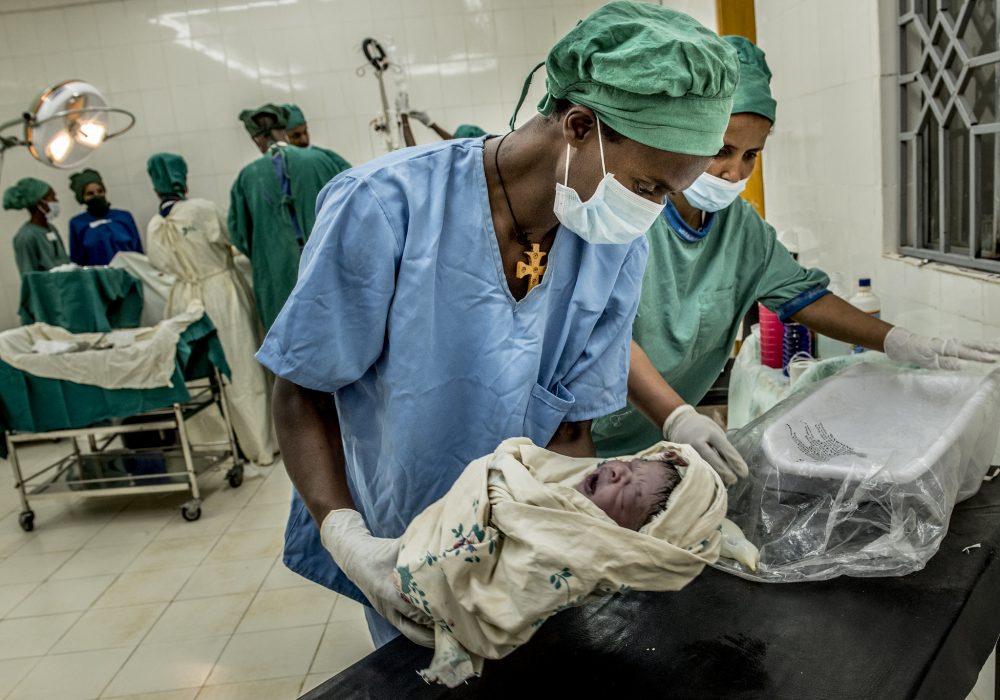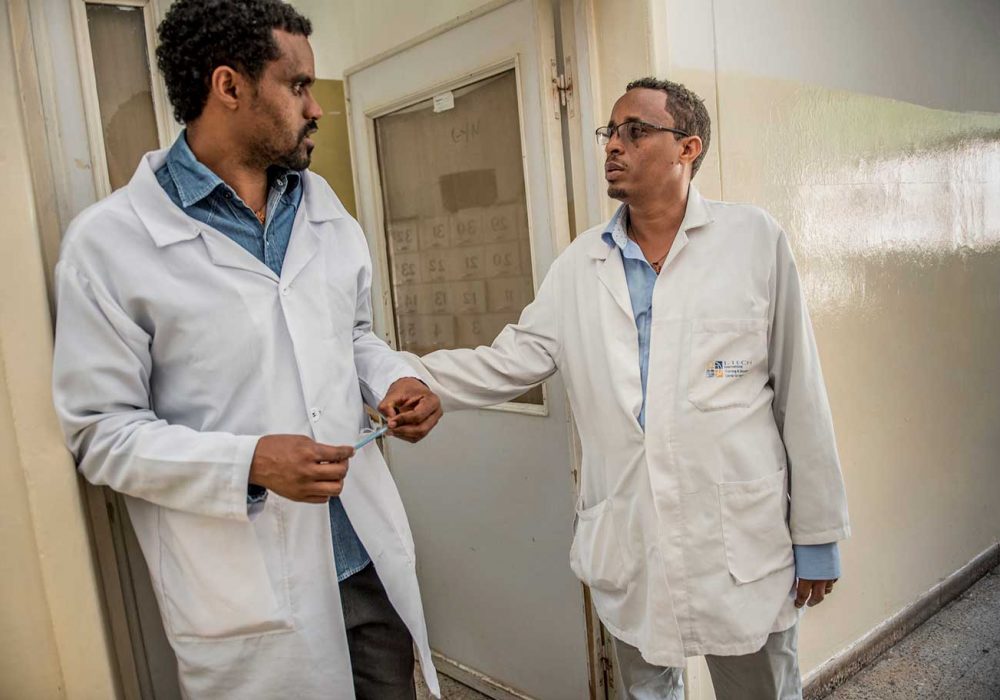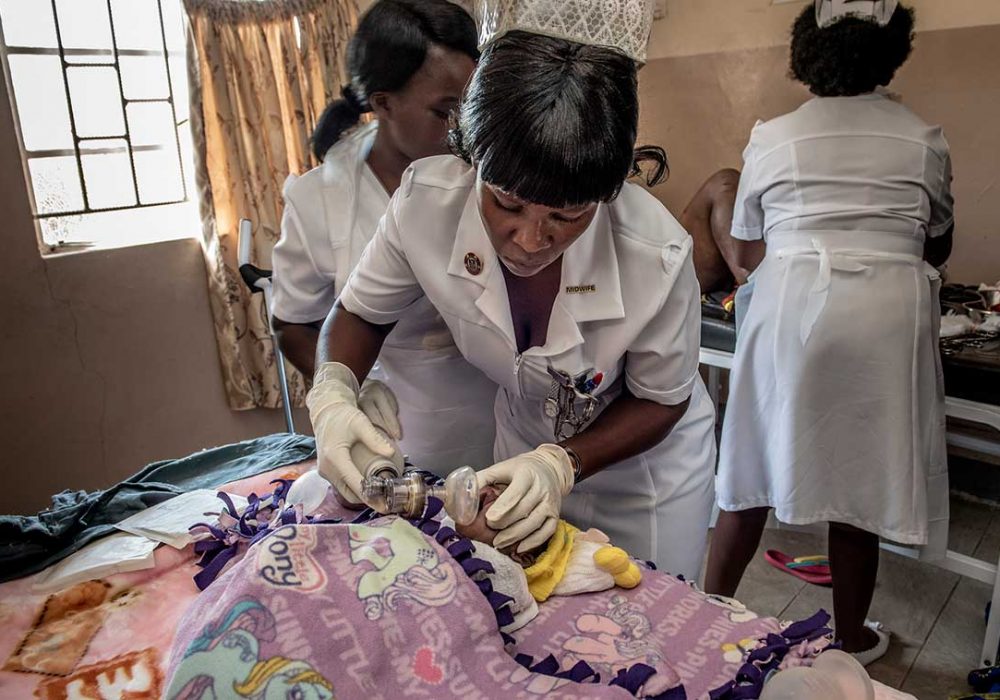Ethiopia


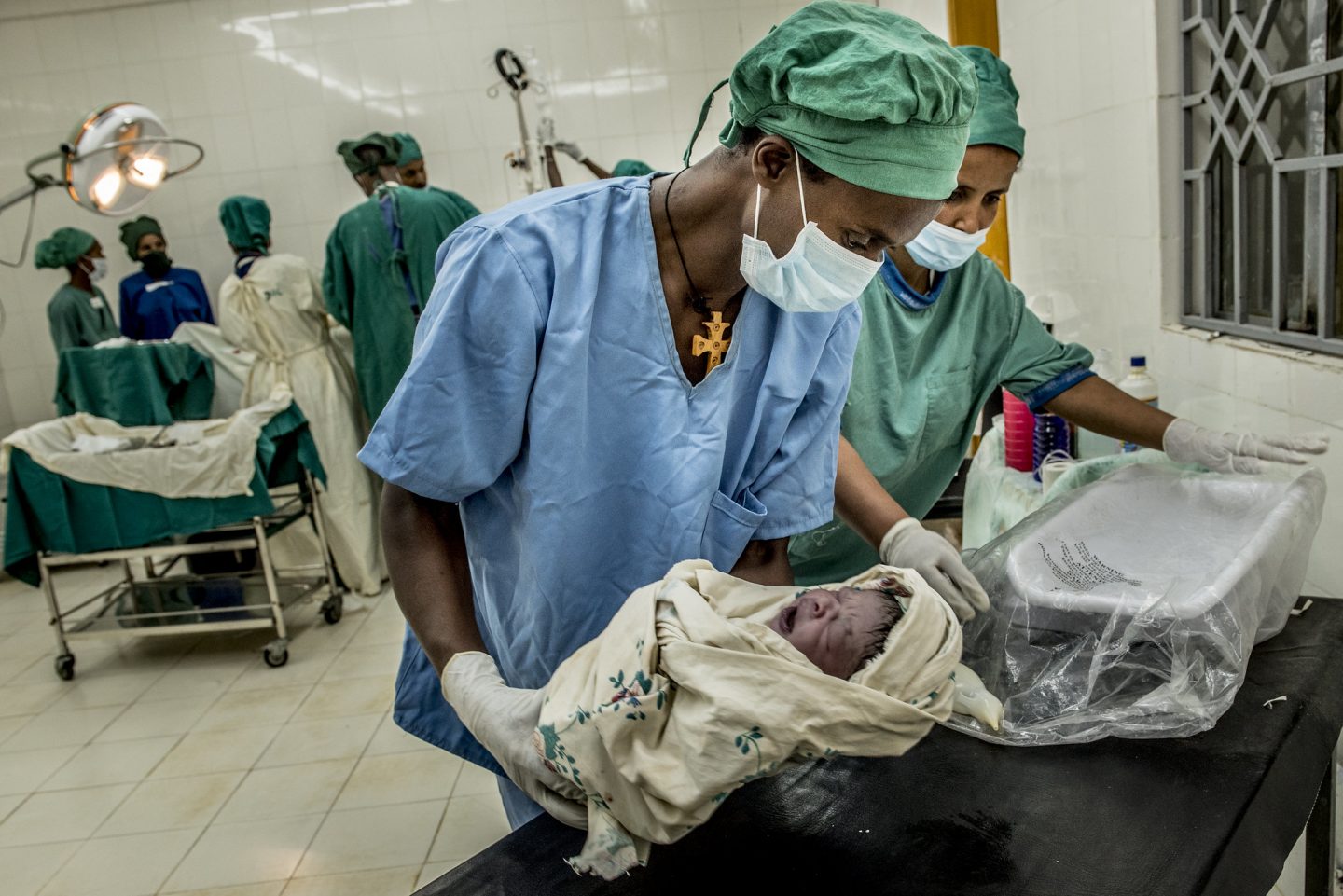
Country Contact
Shoa Girma, Country Director
Tel. +1 251 115 502 124
Kirkos Subcity
Kebele 02/03 House No 693
Wollo Sefer (behind Mina Bldg & La Petite France)
Addis Ababa, Ethiopia
Current and Recent Donors
Bill & Melinda Gates Foundation
Children’s Investment Fund Foundation
Department for International Development
ELMA Philanthropies
Gavi, the Vaccine Alliance
GE Foundation
Harvard University
UBS Optimus Foundation
U.S. Centers for Disease Control and Prevention
U.S. Health Resources and Services Administration
USAID
World Bank
Strengthening health systems and improving public health since 2003.
- An innovative, onsite approach to training health care workers in postpartum family planning was introduced to reduce interruptions at health care facilities; as a result, services at maternity wards are not disrupted by staff absences, and clients receive better care.
- In Gambella Region, more than 106,000 adolescent and adult males received safe, high-quality voluntary medical male circumcision services, thereby benefiting from this procedure’s protective benefit against HIV.
- A Jhpiego study of the feasibility of group antenatal care provided by health extension workers in rural hard-to-reach locations, showed that of the group antenatal care attendees, 100% of women who delivered during the study period delivered their babies in a facility.
- Under the Health Workforce Improvement Project, Jhpiego has supported 30 higher education institutions and 54 hospitals as part of improving pre-service education and health workforce management.

Our Work in Ethiopia
Health Workforce Improvement Program (HWIP)
Jhpiego is implementing this five-year program, funded by the U.S. Agency for International Development, to ensure Ethiopia’s health workforce is better skilled and managed to provide quality health care for all citizens of Ethiopia and ultimately contributes to the vision of healthier, productive and prosperous Ethiopians. HWIP works with various partners—including the Ministry of Health, the Ministry of Education and the Education and Training Authority at national and sub-national levels; higher education institutes that provide health care education; health facilities; and targeted health worker professional associations—to improve the quality of Ethiopia’s health workforce. In addition to providing technical assistance to optimize Ethiopia’s health workforce, the program seeks to reduce gender disparities in the health workforce by: 1) addressing gender challenges during health workforce development, deployment and management; and 2) working with gender offices in higher education institutes to provide appropriate technical and financial incentives to overcome gender barriers. Jhpiego is also delivering structural interventions to ensure that gains are sustainable and Ethiopia’s health workforce will be available, accessible and capable of delivering quality health care services that meet the Government of Ethiopia’s goal of providing universal health care to all citizens. As a result of these interventions, Ethiopia’s health workforce will be better qualified, better managed and more motivated to provide effective health care services to all segments of the Ethiopian population. The Jhpiego-led consortium implementing this program includes Management Sciences for Health, AMREF, Ethiopian Midwives Association, Ethiopian Medical Association, Ethiopian Association of Anesthetist and Ethiopian Nursing Association.
HWIP – Strengthening Continuing Professional Development in Ethiopia.pdf
HWIP – Restoring Essential Health Services in Conflict Affected Areas.pdf
Fighting COVID-19 Under the Reaching Impact, Saturation, and Epidemic Control (RISE) Project
With funding from the U.S. Agency for International Development (USAID), RISE is working in select countries, including Ethiopia, to address the COVID-19 pandemic. In line with ministry of health priorities in each country, RISE’s COVID-19 response support may include: assisting in the planning and rollout of national vaccine plans, including ensuring health care workers are prepared to implement and monitor this plan; providing focused and clinically relevant capacity building for clinicians providing COVID-19 case management; strengthening the oxygen ecosystem; and supporting health care workers in oxygen conservation, rationalization and non-invasive respiratory care.
RISE is a five-year global project—funded by the U.S. President’s Emergency Plan for AIDS Relief (PEPFAR) and USAID—that works with countries to achieve a shared vision of attaining and maintaining epidemic control, with stronger local partners capable of managing and achieving results through sustainable, self-reliant and resilient health systems. The project is led by Jhpiego with the following partners: ICAP at Columbia University, Management Sciences for Health, Anova, BAO Systems, Johns Hopkins University Center for Public Health and Human Rights, and Mann Global Health. For the COVID-19 ventilator technical assistance effort, RISE is also collaborating with the University of California San Francisco, World Federation of Societies of Anesthesiologists (via the GH STAR project), FHI 360 (via the EpiC Project) and Johns Hopkins University emergency medicine and critical care staff.
Global Reach II
The U.S. President’s Emergency Plan for AIDS Relief has delivered remarkable lifesaving results, with several countries approaching UNAIDS 95-95-95 goals for HIV epidemic control. As countries like Ethiopia come closer to their targets, challenges to close the remaining gaps and cross the “last mile” become more difficult, requiring innovative, targeted approaches to ensure equity and extend services to the hardest-to reach populations and underserved areas. Global Reach II is a five-year project that supports the delivery of effective solutions to address these challenges in country-level HIV responses, adapting to the country contexts. In Ethiopia, it supports viral load testing laboratories to improve their equipment maintenance capacity and provide accurate and un-interrupted viral load testing services. This award is funded through the U.S. Health Resources and Services Administration (HRSA); in Ethiopia, Jhpiego leads the project with the following partners: Ethiopian Public Health Institute, Ethiopia Ministry of Health and Ethiopia Centers for Disease Control and Prevention.
Antenatal Care/Postnatal Care (ANC/PNC) Innovations and Implementation Research Platform (ANC/PNC Collective)
With funding from the Bill & Melinda Gates Foundation, Jhpiego is developing an ANC/PNC innovations and implementation research platform. This initiative is designed to strengthen ANC/PNC service delivery through implementation research in Ethiopia, Kenya, Malawi and Mali, and to disseminate learnings globally. The primary expected outcomes include earlier entry by pregnant women into ANC/PNC care; increased continuity of care; improved quality of care; and an improved understanding of key risk factors, vulnerabilities and morbidity/mortality outcomes. The research collective unifies multiple teams under a single collective, comprised of the following partners: Jhpiego, Harvard School of Public Health, Child Health and Mortality Prevention Surveillance (CHAMPS), RTI International, Christian Medical College Vellore, DAI, the World Health Organization, CARE/India and the University of Manitoba. As part of this collective, Jhpiego is: 1) conducting implementation research on innovative service delivery models and tools in three countries; 2) serving as technical advocacy lead by synthesizing data and findings across the collective to inform an evidence package; and 3) providing technical assistance, as needed, as collective partners conceptualize, design, implement and test new service delivery models. Jhpiego is also partnering with the Johns Hopkins School of Public Health Biostatistics Center and Department of International Health for support with statistical analysis, data management and implementation research design.
Rapid Assessment of GBV Referral Services and Providers, Design of Comprehensive Capacity Building Training Strategy and Delivery of Trainings
This award is funded by the Ethiopian Ministry of Women and Social Affairs with World Bank support. The purpose is to conduct a rapid, multi-sectoral assessment to improve understanding of specific gaps in the quality and accessibility of gender-based violence (GBV) services in conflict-affected regions of Ethiopia. Based on assessment findings, Jhpiego will develop a comprehensive capacity building training strategy and manuals to deliver training for improved holistic GBV services within the selected districts (woredas) in Afar, Amhara, Benishangul-Gumuz and Oromia regions.
The people we serve
Country Contact
Shoa Girma, Country Director
Tel. +1 251 115 502 124
Kirkos Subcity
Kebele 02/03 House No 693
Wollo Sefer (behind Mina Bldg & La Petite France)
Addis Ababa, Ethiopia
Current and Recent Donors
Bill & Melinda Gates Foundation
Children’s Investment Fund Foundation
Department for International Development
ELMA Philanthropies
Gavi, the Vaccine Alliance
GE Foundation
Harvard University
UBS Optimus Foundation
U.S. Centers for Disease Control and Prevention
U.S. Health Resources and Services Administration
USAID
World Bank




